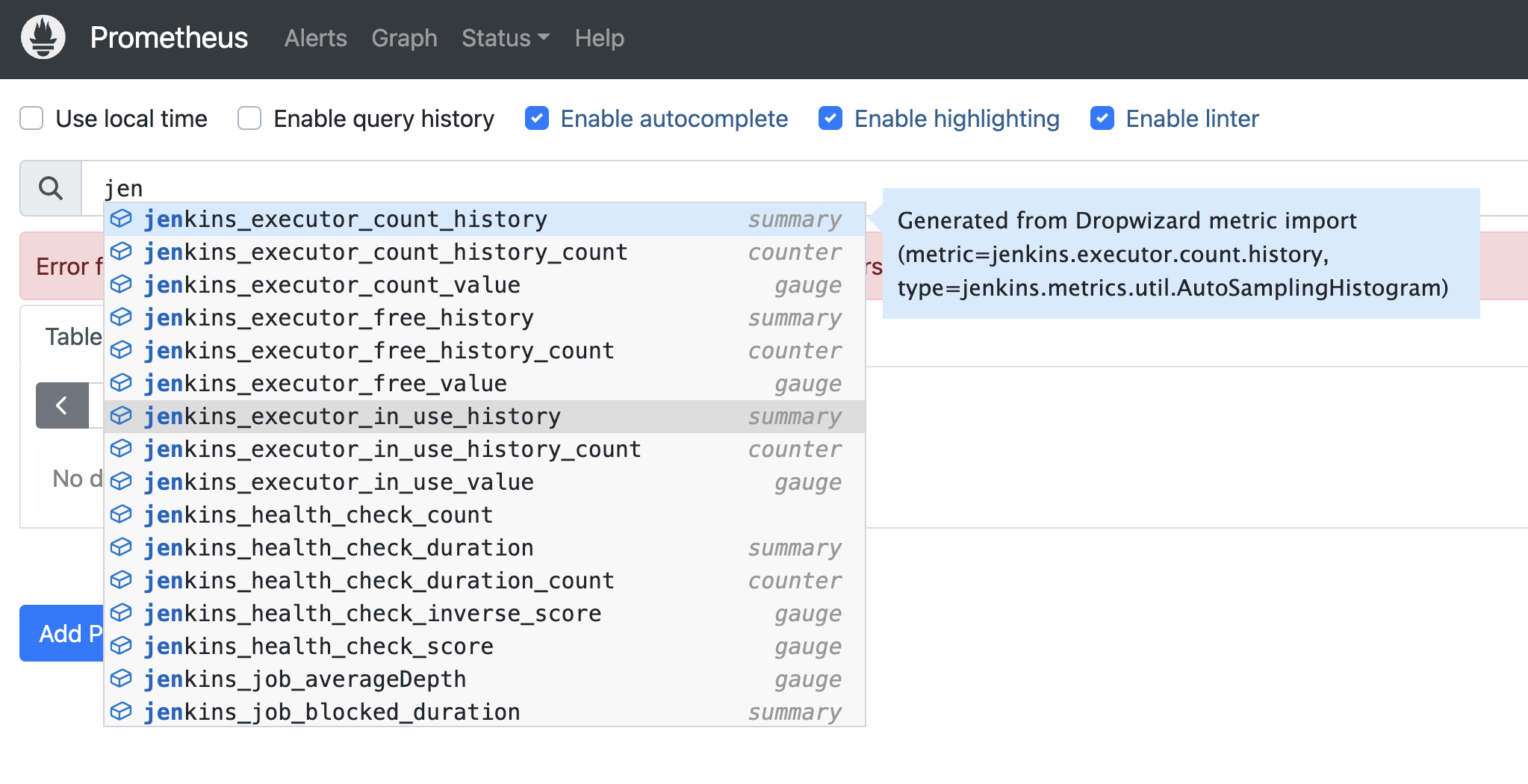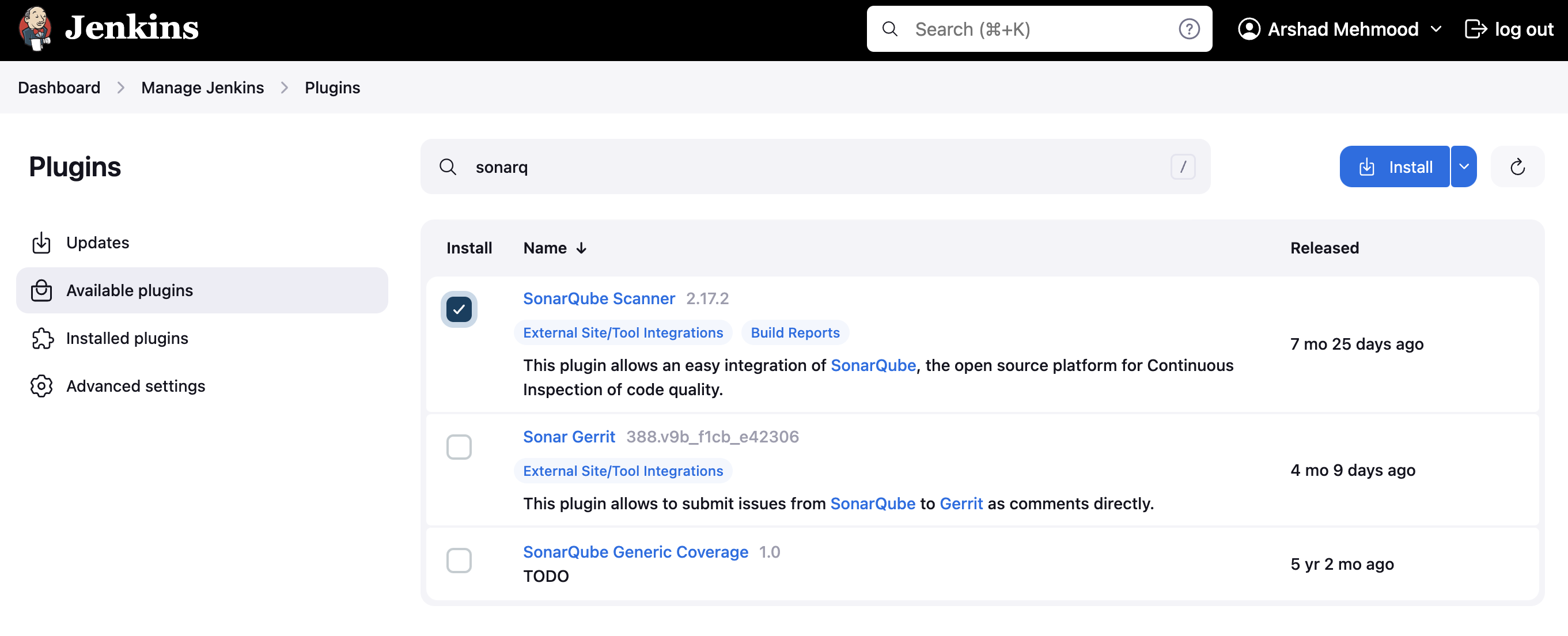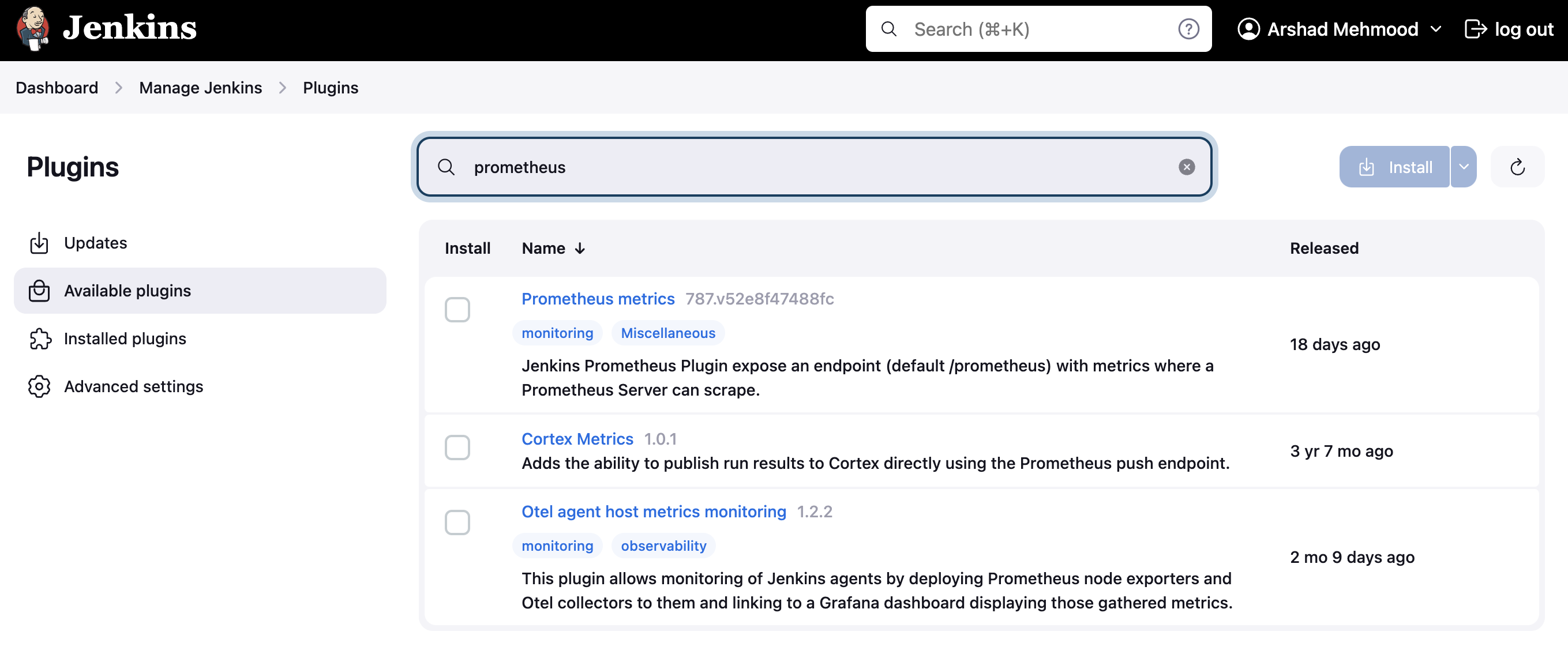Setup SonarQube Prometheus Exporter
Note This post is part of the DevOps Journey
To monitor SonarQube metrics with Prometheus, we can use the SonarQube Prometheus Exporter plugin or the built-in web API metrics endpoint.
Method 1: SonarQube Prometheus Exporter Plugin
Install the Plugin
- Download the SonarQube Prometheus Exporter plugin from GitHub
- Place the JAR file in
$SONARQUBE_HOME/extensions/plugins/ - Restart SonarQube
Access Metrics
The plugin exposes metrics at:
http://localhost:9000/api/prometheus/metrics
Method 2: Using SonarQube Web API
SonarQube provides built-in APIs that can be scraped by Prometheus using custom exporters.
Key SonarQube Metrics APIs
- System Health:
/api/system/health - Project Statistics:
/api/measures/component - Quality Gates:
/api/qualitygates/project_status - Issues:
/api/issues/search
Configure Prometheus to Scrape SonarQube
Add SonarQube to your prometheus.yml:
scrape_configs:
- job_name: 'sonarqube'
static_configs:
- targets: ['localhost:9000']
metrics_path: '/api/prometheus/metrics'
scrape_interval: 30s
basic_auth:
username: 'your-sonarqube-token'
password: ''

Custom Exporter Script
If the plugin isn’t available, create a custom Python exporter:
#!/usr/bin/env python3
import requests
import time
from prometheus_client import start_http_server, Gauge
# SonarQube connection
SONARQUBE_URL = "http://localhost:9000"
TOKEN = "your-sonarqube-token"
# Prometheus metrics
lines_of_code = Gauge('sonarqube_lines_of_code', 'Lines of code', ['project'])
bugs = Gauge('sonarqube_bugs', 'Number of bugs', ['project'])
vulnerabilities = Gauge('sonarqube_vulnerabilities', 'Number of vulnerabilities', ['project'])
code_smells = Gauge('sonarqube_code_smells', 'Number of code smells', ['project'])
def collect_metrics():
# Get projects
projects_url = f"{SONARQUBE_URL}/api/projects/search"
response = requests.get(projects_url, auth=(TOKEN, ''))
for project in response.json()['components']:
project_key = project['key']
# Get metrics for each project
metrics_url = f"{SONARQUBE_URL}/api/measures/component"
params = {
'component': project_key,
'metricKeys': 'ncloc,bugs,vulnerabilities,code_smells'
}
metrics_response = requests.get(metrics_url, params=params, auth=(TOKEN, ''))
measures = metrics_response.json()['component']['measures']
for measure in measures:
metric_key = measure['metric']
value = float(measure['value'])
if metric_key == 'ncloc':
lines_of_code.labels(project=project_key).set(value)
elif metric_key == 'bugs':
bugs.labels(project=project_key).set(value)
elif metric_key == 'vulnerabilities':
vulnerabilities.labels(project=project_key).set(value)
elif metric_key == 'code_smells':
code_smells.labels(project=project_key).set(value)
if __name__ == '__main__':
start_http_server(8000)
while True:
collect_metrics()
time.sleep(60)
Run the Custom Exporter
python3 sonarqube_exporter.py
Update Prometheus Configuration
scrape_configs:
- job_name: 'sonarqube-custom'
static_configs:
- targets: ['localhost:8000']
scrape_interval: 60s
Key SonarQube Metrics
Monitor these important metrics:
- Lines of Code (
ncloc) - Bugs (
bugs) - Vulnerabilities (
vulnerabilities) - Code Smells (
code_smells) - Coverage (
coverage) - Duplicated Lines (
duplicated_lines_density) - Technical Debt (
sqale_index)
Grafana Dashboard
Create dashboards to visualize:
- Code quality trends over time
- Project comparison matrices
- Quality gate success rates
- Technical debt accumulation
This setup provides comprehensive monitoring of your code quality metrics alongside your infrastructure monitoring.






Leave a comment